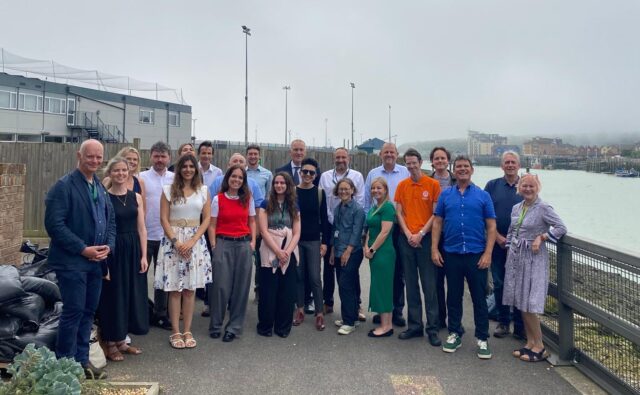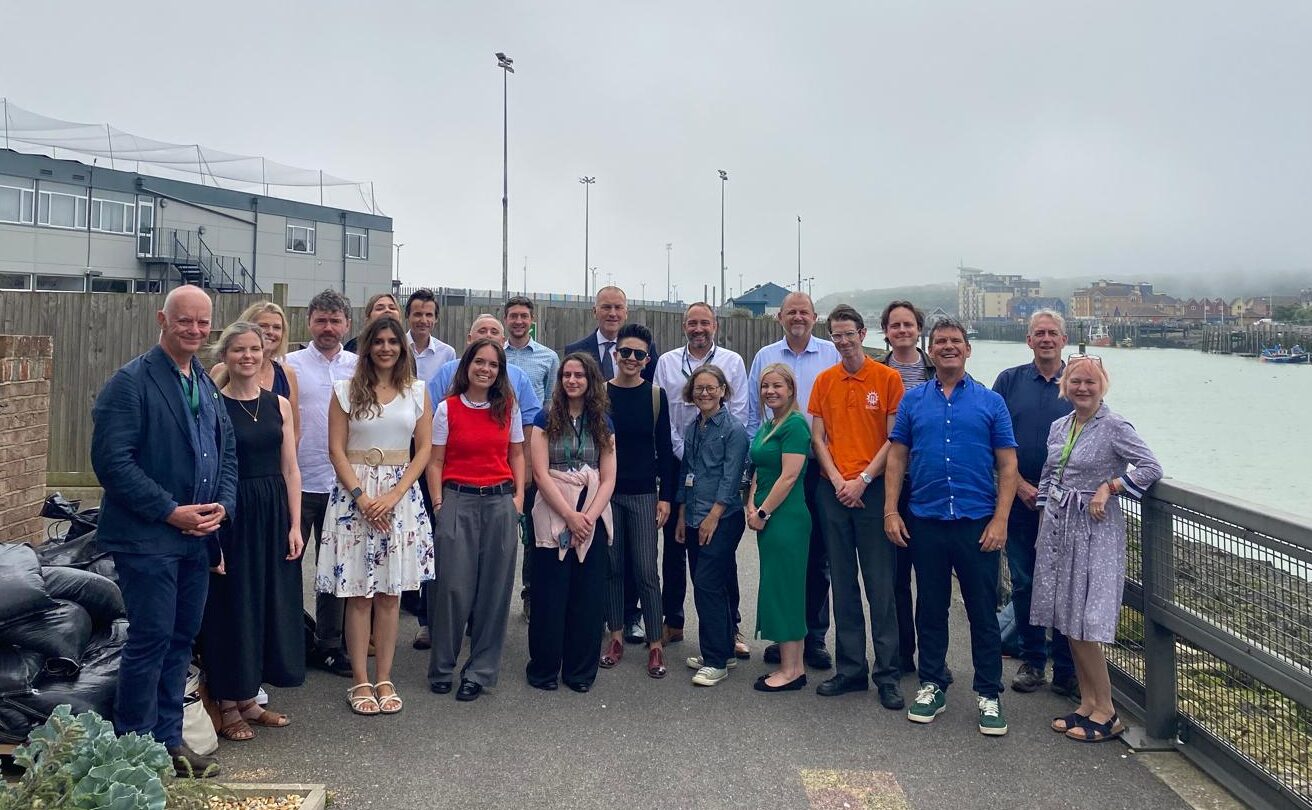This summer has marked two milestone moments for Community Energy Pathways (CEPathways) and the wider community energy movement. In July, CEPathways hosted visits from both Great British Energy (GBE) and Ofgem, bringing together community groups, policymakers, and sector leaders at both Lewes House and The Marine Workshops, Newhaven. These events showcased the strength of community energy in Sussex—and the national opportunity it represents through the lens of consumer, community and local.
Scaling Up with GB Energy
GBE’s visit included Juergen Maier the Chair, Executive Director Helen Seagrave along with Patrick Allcorn, Head of Local Energy at DESNZ. The visit focused on how we can unlock more community-owned renewable projects by building on CEPathway’s “Community Energy in a Box” approach to capacity building for the community energy sector. This approach could be scaled nationally to give communities the practical tools to launch and manage their own energy projects.
Two priority issues emerged where GBE support could transform the sector:
-
Grid connections – ensuring fair and timely access for community schemes.
-
Finance – reducing borrowing costs and backstopping loans to enable projects to get off the ground.
Discussions also explored developing a national social value framework, ensuring the true benefits of community energy—carbon savings, jobs, skills, wellbeing, and local wealth—are recognised by government, local authority procurement teams, investors, and communities alike.
How could Sussex Community Energy Pioneer groups work with GBE to achieve CP2030? The Sussex Groups pitched a concept to GBE as a potential pilot. Sussex Groups currently operate 24MWs of Community Energy and the group discussed how this could be multiplied to 88MWs up to 2030. We discussed how match funding could speed up delivery and establish a regional revolving fund to sustain growth.

Ofgem Roundtable – Tackling Barriers Together
The following day, CEPathways welcomed Ofgem for a showcase and roundtable with local community energy groups and champions. The visit started with Mark McAllister, Chair of Ofgem and Ollie Pendered filming a webcast to Ofgem staff on themes of consumer, community and local. In the webcast, Ollie discussed community energy and introduced Mark to Sussex based Energy Champions working on the frontline, and Chris Rowland CEO of the local Community Energy group Ovesco and finally a Q&A with Leader of Lewes Council, Zoe Nicholson. Conversations centred on the challenges—and opportunities—of powering up local generation and powering down energy demand.
Key themes included:
-
Connections reform: Can community projects gain special status in the grid queue, and could upfront funding models reduce long delays?
-
Local supply: How can projects like Ouse Valley Solar Farm sell cheaper electricity directly to nearby communities?
-
Energy champions: Embedding trusted, local advisors in communities to tackle fuel poverty, promote flexibility, and build trust.
-
Policy recognition: Working with Ofgem to embed social value into regulatory frameworks and access funds currently restricted to charities.
Ofgem showed real interest in continuing the dialogue, proposing follow-up workshops on connections policy and inviting delegations of community energy champions to their offices.

A Shared Vision
Both visits reinforced a powerful message: community energy is popular, practical, and ready to grow—but it needs the right support to thrive. Organisations like CEPathway’s, have a role in convening groups, shaping proposals, and driving forward pilots so that the sector can deliver at scale when given the tools and recognition it deserves.
As Ollie Pendered put it, the goal is to build 100 hyper-engaged communities, each equipped with local champions and renewable generation, ready to flex, adapt, and lead the way.
With GB Energy, Ofgem, DESNZ, and DNOs now actively engaging, the pathway to a fair, locally led energy transition is clearer than ever.
